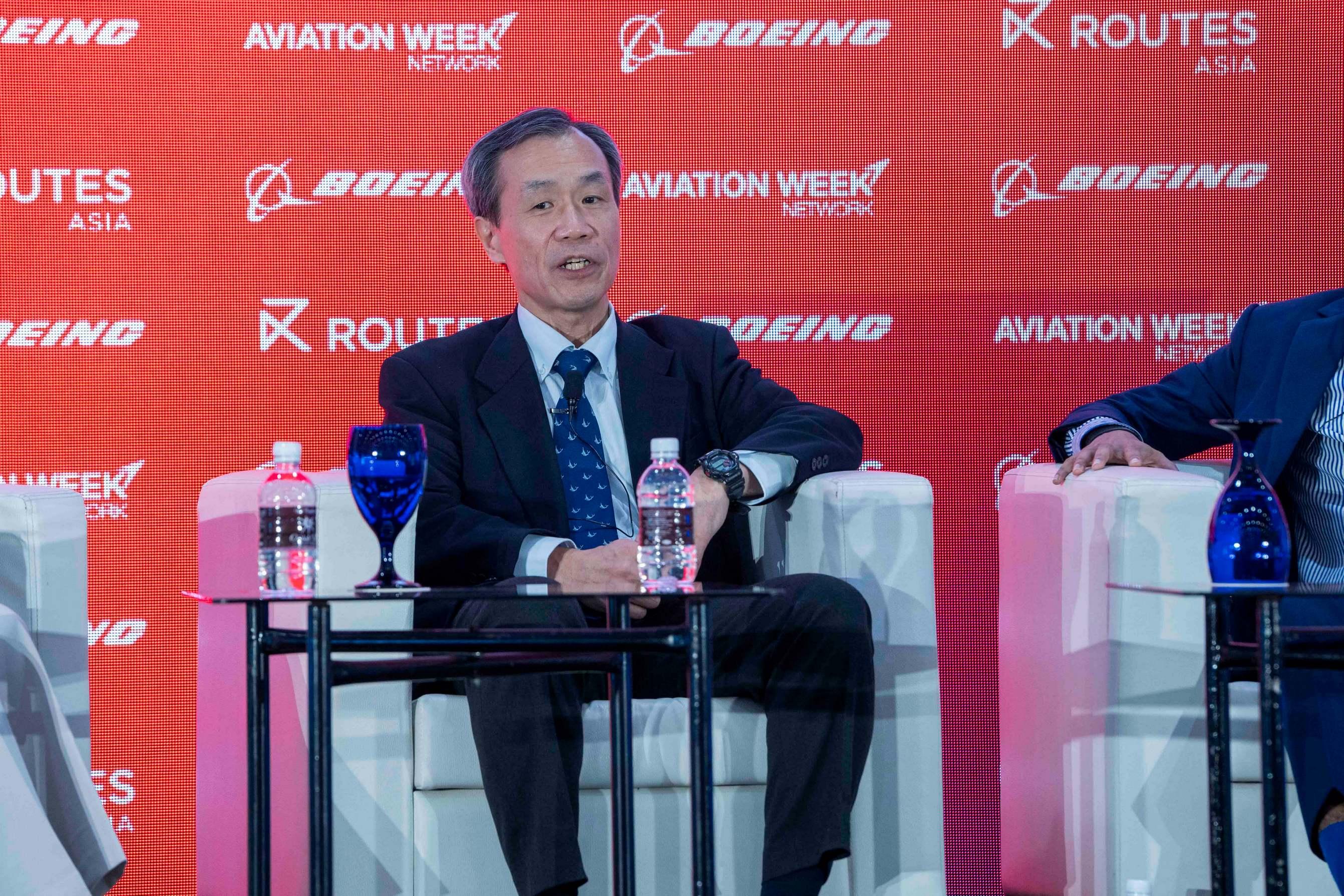
ANA director of decarbonization and corporate planning Hiroaki Sugimori.
Credit: Ocean Driven Media
The Asia-Pacific air transport industry needs to speak with one voice on the production and use of sustainable aviation fuel (SAF), All Nippon Airways’ (ANA) sustainability lead said at Routes Asia 2024. “I have attended a few ICAO meetings over the years and I noticed that the African group of...
Subscription Required
This content requires a subscription to one of the Aviation Week Intelligence Network (AWIN) bundles.
Schedule a demo today to find out how you can access this content and similar content related to your area of the global aviation industry.
Already an AWIN subscriber? Login
Did you know? Aviation Week has won top honors multiple times in the Jesse H. Neal National Business Journalism Awards, the business-to-business media equivalent of the Pulitzer Prizes.





